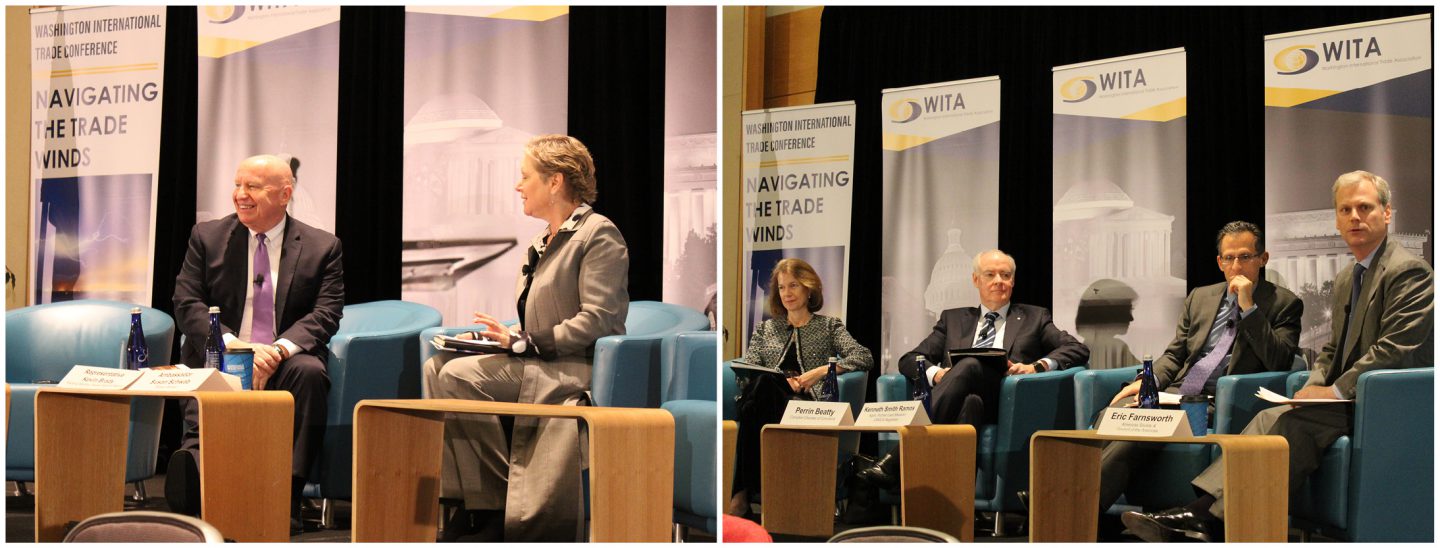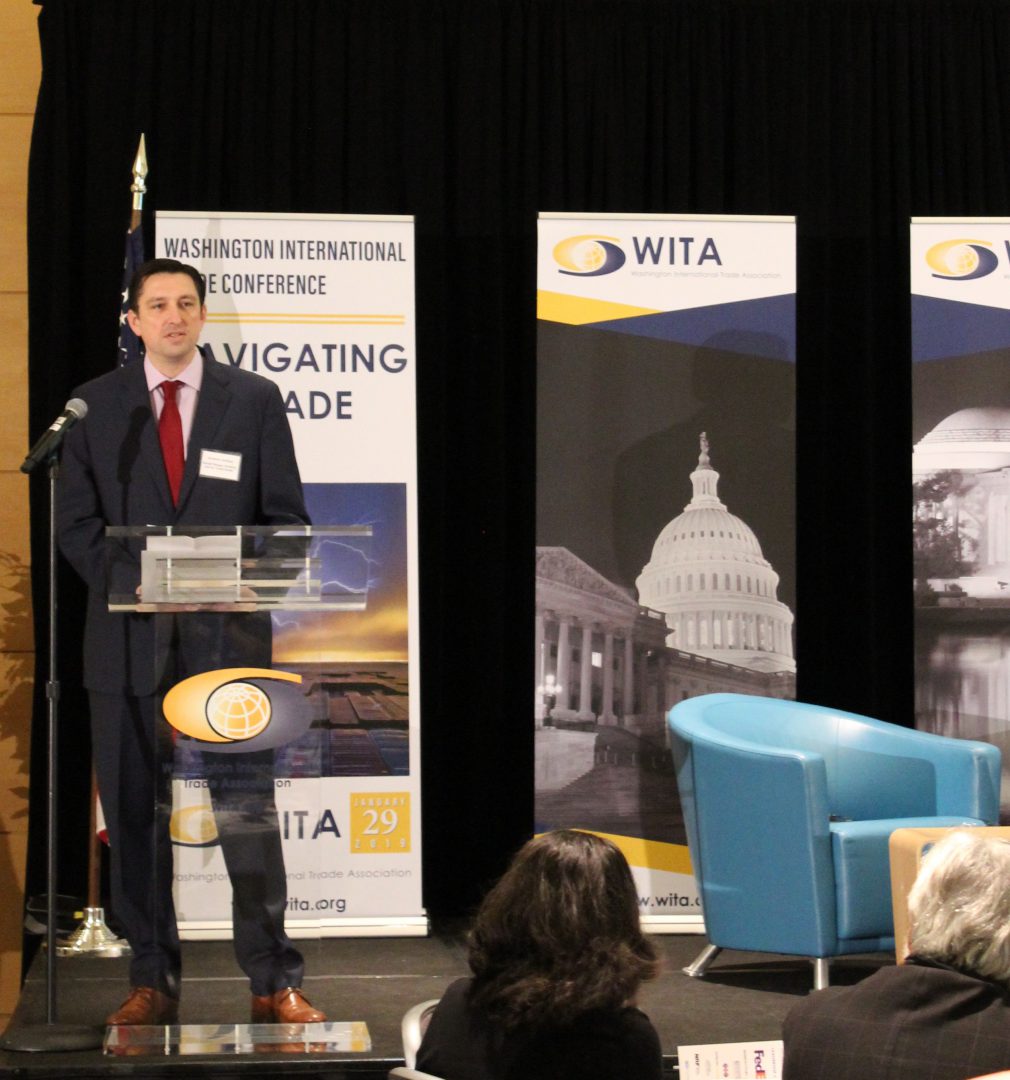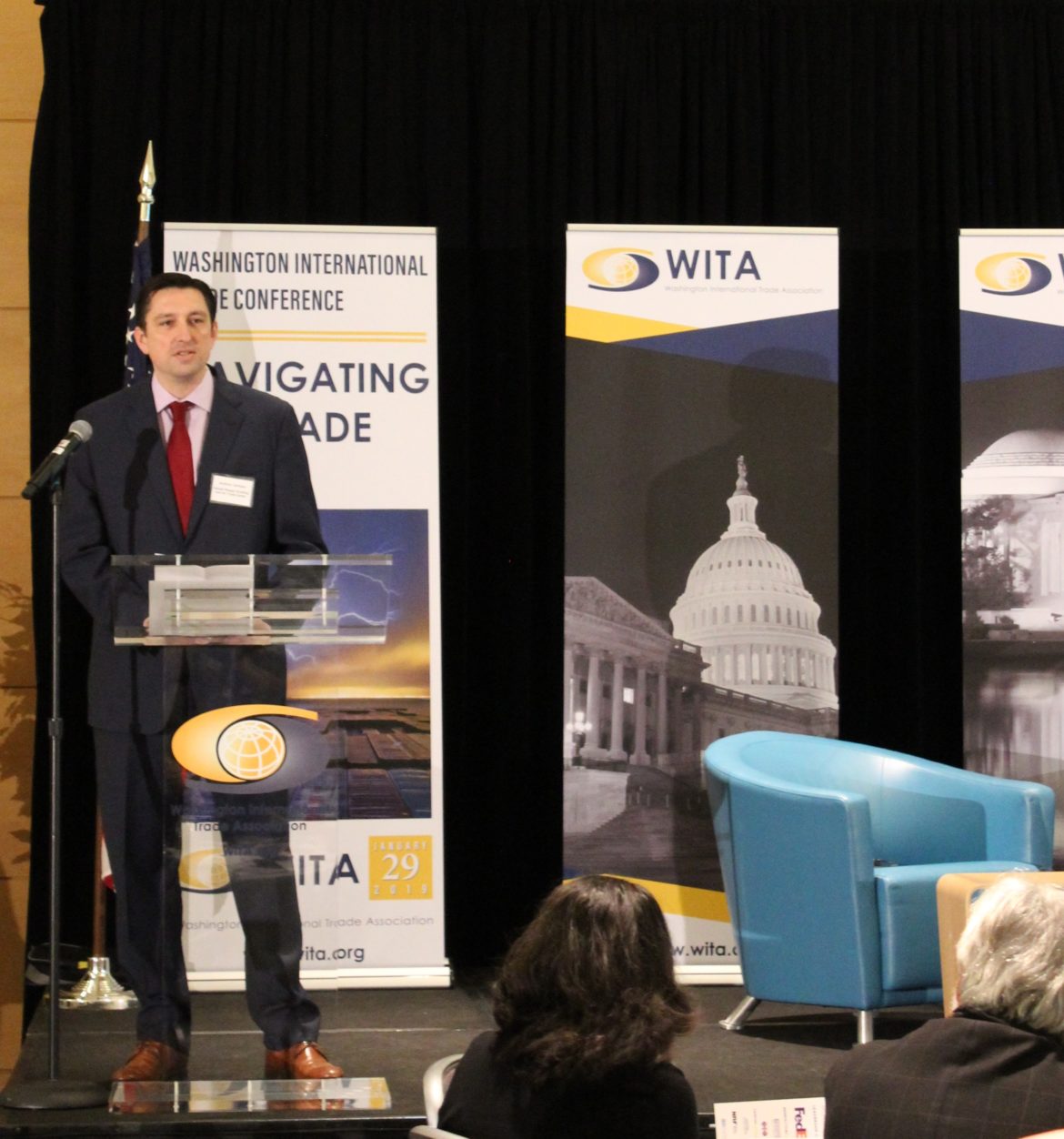
On January 29, 2019, the Washington International Trade Association (WITA) hosted their first annual International Trade Conference at the Ronald Reagan Building and International Trade Center. The Atrium Ballroom quickly filled up with trade industry professionals joined by multiple panels of thought leaders from the government and private sector to discuss the United States – Mexico – Canada Agreement (USMCA), tariffs, negotiating a trade deal with China, trade press observations, current markets and trade implications on national security.
Andrew Gelfuso, Vice President of Trade at TCMA and Director of the World Trade Center Washington DC, offered welcome remarks to kick off the 2019 Conference. “For nearly 20 years, this trade center has enjoyed a tremendous partnership with WITA. Together, we have offered a neutral forum for the open and robust discussion of international trade policy and related issues.” Following, Ken Levinson, Executive Director of WITA, introduced the first round of panelists to the stage.
Some of the top takeaways from the panel discussions included:
The Art of the Deal: the USMCA
Panelists discussed the USMCA and how they view it as an upgrade to NAFTA, since it will support high-paying jobs for Americans and grow the North American economy by creating more sustainable and inclusive trade. They also talked about the tariffs imposed on steel and aluminum and how they are negatively affecting the auto industry and hurting many small to medium sized business who cannot absorb the cost of the tariffs, stated the panel.
The Future of Trade: A NextGenTrade Discussions of Technology, Trade Facilitation and Global Value Chains
The entire profile of trade has changed significantly since people now have access to the world as their own marketplace. Technology has the power to be integrated when it comes to trade, and that needs to happen in order to improve the system in place. The panelists also speculated that artificial intelligence will be the next big tech revolution.


In a Trade War with China, What does Victory look like?
David Dollar from the Brookings Institution believes that there is a “very strong incentive for China to make a trade deal with the U.S.” since the prior economy is slowing down and the stock market went down by 25 percent, complicating the trade war situation. So far the U.S. has imposed three separate tariffs on goods coming in from China totaling more than $250 billion, covering a wide range of consumer items and products. Former U.S. Trade Representative, Ambassador Darci Vetter with Edelman, stated she is “not clear the U.S. will ever get those markets back” when asked about the agricultural commodities and the trade war with China. This statement was backed up by others in the panel making the point that the U.S. is giving customers a reason to doubt them as a ‘supplier of choice’ because of their lack or reliability.
All of the panel discussions were thought provoking, touching on some of the major issues in international trade today, and kept the crowd engaged. We look forward to hosting another successful Conference in 2020.

